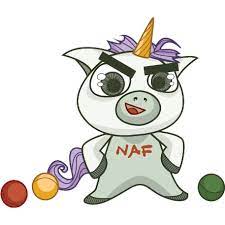Hi everyone, if you get this in time, Edgar Villanueva and I are having one of our “Decolonizing AF” conversations at 10:30am PT on Instagram today, May 23rd. I think if you go to either of our Instagram pages (@villanuevaedgar or @nonprofitAF) at that time, it should let you know that we’re speaking live. Have low expectations; we’re just winging it.
Also, the time is coming up for our annual sector-wide Party to Enhance Equity in Philanthropy (PEEP), a time around the Summer Solstice when funders and nonprofit leaders get together to hang out informally, with the hope of building relationships and breaking down power dynamics. If your geographic area is hosting something, let me know in the comment section so I can compile it. In Seattle, there’s likely going to be an event on Thursday June 15th from 3 to 5pm somewhere in the Central District; more details coming soon.
18 years ago, I remember being excited that I finally got this really great community leader to join my nonprofit’s board. I will call him “Minh.” I was excited to have Minh and his skills, especially around the logistics of running a board, which at the time was full of well-meaning but inexperienced leaders. Maybe Minh would get the board into shape. And he seemed like a nice guy who truly wanted to help the community.
Minh turned out to be a nightmare. Among his many offenses, he butted into operations, including insisting on designing the flyer for the annual gala. When it turned out horrible and the staff gave him feedback (“this looks like we’re throwing a Halloween party”), he was offended and demanded staff meeting minutes for some reason. Then he tried to start a mutiny to remove the board chair, which then caused a rumor that I was trying to remove the board chair, and then the board chair tried to get me fired as the ED. Even now, 18 years later, I sometimes wake up in a cold sweat, Minh’s cursed words ringing in my ears: “I have graphic design experience!”
This is not a unique story. Throughout the next two decades, I would encounter board members who started as nice people who then became assholes after a year or two on the board. And I hear similar stories from colleagues. And on occasions I catch myself veering toward asshole territory when I am on a board: “I don’t understand. Why do staff need…what do they call it…benefits?”
Not to say everyone becomes a jerk when they join a board, of course; there are lots of nice people who stay nice, and there are also assholes who turn nice. (And let’s not talk about crappy EDs/CEOs who are propped up by a board that fails to do its duties, as that’s for another day). But it happens with enough frequency that we should discuss it. Here are a few reasons we should consider:
The board structure is set up to encourage asshole tendencies: The traditional structure sets it up so that the board is considered the highest governing authority at the organization. Board members are often considered the “boss” of the staff. That sort of power can get to people’s heads, and they start to believe their own hype.
People think they’re doing a good job when they’re being difficult: A lot of board members believe their job is to challenge the CEO/ED and staff to keep them “accountable” and on their toes or whatever. They believe their primary job is to minimize risk, and that means poking holes and finding weaknesses in everything.
Lack of feedback mechanisms for boards: Because of the power dynamics inherent in board structure, there are often few avenues to give board members feedback. When board members can fire the ED/CEO and make staff’s lives miserable, it’s hard to be honest.
The prioritization of people with money or connections to it: The entire sector has a bad habit of making people with money feel special and important, with the more money they have, the more perks and deference they receive. Boards contribute to the problem by focusing on recruiting board members with money and connections, who may act in certain ways because they’re used to being treated a certain way.
The superiority complex among corporate people: We recruit a lot of corporate folks to join our boards. Many are great, but many have a superiority complex, believing that for-profits are inherently better run than nonprofits, and that they themselves are doing the organization a huge favor by being on the board.
…









